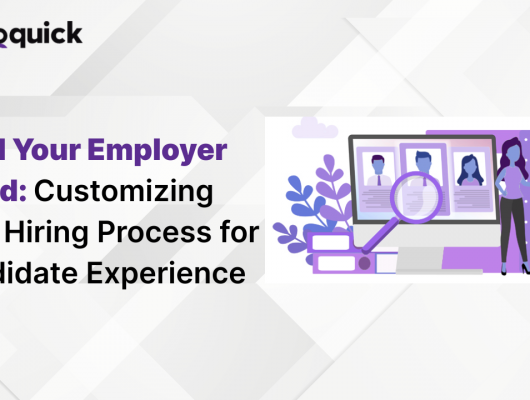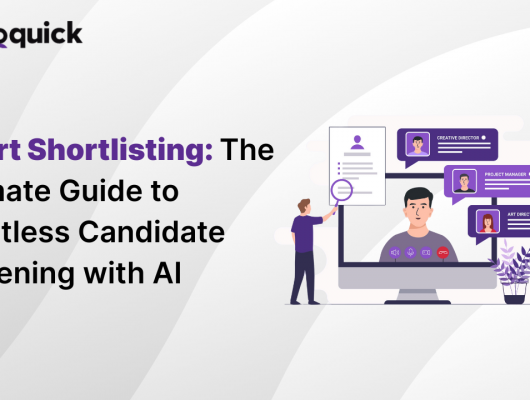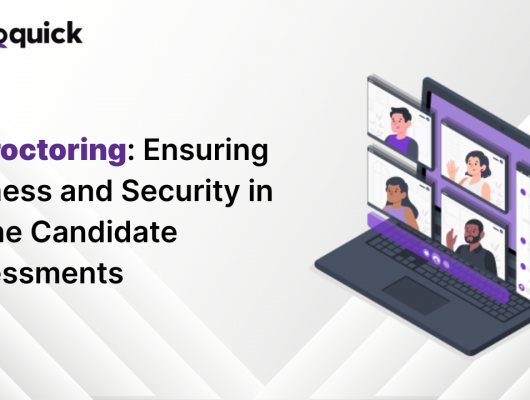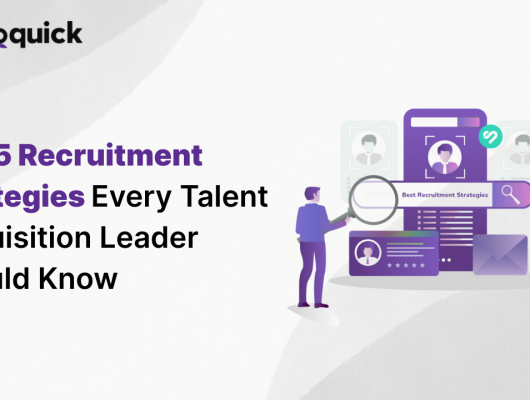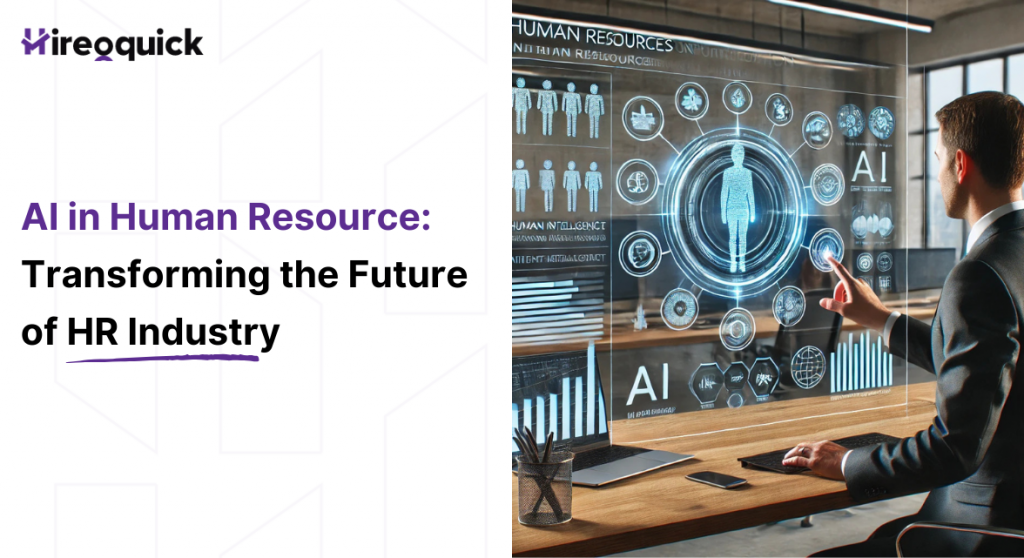
Artificial intelligence (AI) is making waves across various industries, and human resources (HR) is no exception. With the power to automate processes, analyze data, and enhance decision-making, it is also revolutionizing the way organizations manage their workforce. This blog delves into the significant role of Artificial intelligence in HR, exploring its benefits, applications, and how tools like HireOQuick are paving the way for smarter hiring solutions, aligning with the latest HR trends
Understanding AI in HR
What is AI in HR?
AI in HR refers to the integration of artificial intelligence technologies into HR practices to streamline processes, improve efficiency, and enhance the overall employee experience. From recruitment and onboarding to performance management and employee engagement, it can transform traditional HR functions into data-driven, efficient operations.
Why AI Matters in HR
The shift towards Artificial intelligence in HR is driven by the need for organizations to adapt to a rapidly changing workforce landscape. Here are some reasons why it is becoming essential in HR:
- Efficiency: Automating repetitive tasks allows HR professionals to focus on strategic initiatives.
- Data-Driven Decisions: it analyzes vast amounts of data, providing insights that drive better decision-making.
- Enhanced Candidate Experience: Artificial intelligence tools improve communication and engagement during the recruitment process.
- Cost Savings: By streamlining processes, organizations can reduce costs associated with hiring and employee management.
Key Applications of AI in HR
Recruitment and Talent Acquisition
One of the most significant applications of AI in HR is in recruitment. Traditional hiring processes can be time-consuming and inefficient. AI-powered tools are changing this narrative.
AI-Powered Screening
AI algorithms can quickly scan resumes and applications, identifying the best candidates based on predetermined criteria. This reduces the time HR teams spend reviewing applications, allowing them to focus on more qualified candidates, a key element in modern recruitment marketing strategies.
Chatbots for Initial Engagement
Chatbots can engage candidates through conversational interfaces, answering questions and providing updates on the hiring process. This enhances the candidate experience by ensuring they receive timely responses, while also supporting recruitment marketing by maintaining positive employer branding.
Employee Onboarding
The onboarding process can be cumbersome for new hires. It can streamline this process by:
- Automating Administrative Tasks: Artificial intelligence tools can send welcome emails, schedule training sessions, and provide essential resources, reducing manual workload.
- Personalized Learning Experiences: It can tailor onboarding materials based on individual employee needs, ensuring a smooth transition into the organization.
Performance Management
AI in HR extends to performance management, allowing organizations to monitor and assess employee performance more effectively.
Continuous Feedback
AI tools can facilitate continuous feedback by collecting data on employee performance in real-time. This helps managers provide timely and constructive feedback, fostering a culture of growth and development.
Predictive Analytics
By analyzing performance data, it also helps to predict employee outcomes, helping HR professionals identify high-potential employees and areas for improvement. This data-driven approach is aligned with the best recruitment methods and enables more informed talent management decisions.
Employee Engagement and Retention
AI plays a crucial role in enhancing employee engagement and retention strategies. Engaged employees are more likely to stay with an organization, reducing turnover rates, which is a key aspect of successful recruitment marketing.
Sentiment Analysis
It helps you to analyze employee feedback through surveys and social media interactions to gauge overall sentiment within the organization. This allows HR to proactively address any issues affecting employee morale, staying in line with current HR trends around employee experience.
Personalized Development Plans
It helps to create tailored development plans for employees based on their skills, interests, and career aspirations, promoting a culture of continuous learning and professional growth.
Challenges of Implementing AI in HR
Data Privacy Concerns
As organizations collect and analyze employee data, privacy concerns arise. HR departments must ensure compliance with data protection regulations and maintain transparency with employees about how their data is used.
Bias in algorithms
AI systems can inadvertently perpetuate biases present in historical data. HR professionals must work to mitigate these biases by regularly auditing AI algorithms and ensuring they are trained on diverse datasets, which is essential in both HR trends and best recruitment methods.
Change Management
Implementing AI technologies requires a cultural shift within organizations. HR leaders must communicate the benefits of AI to employees and provide training to ensure successful adoption.
The Role of HireOQuick in AI-Driven Recruitment
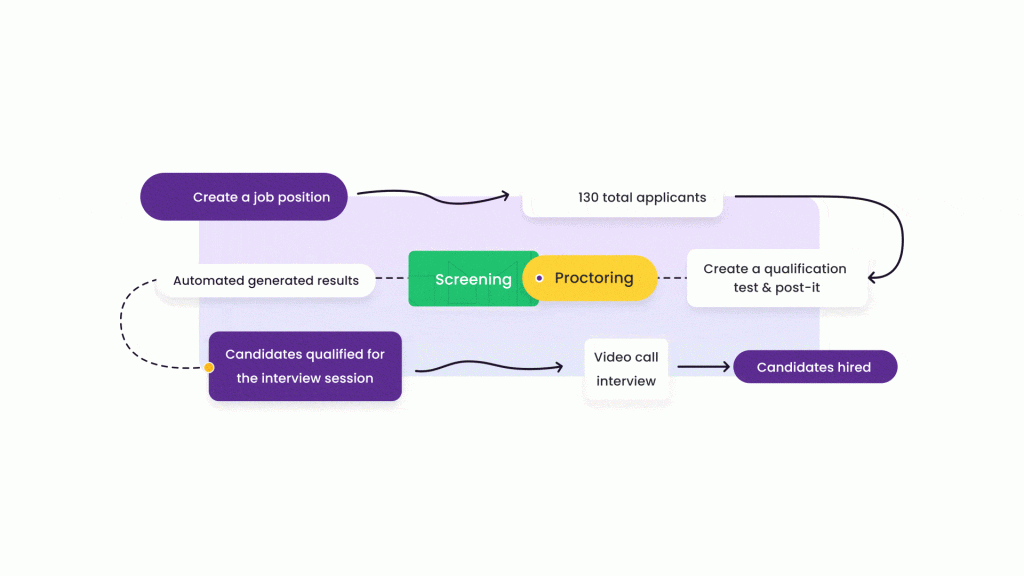
Streamlining the Hiring Process
HireOQuick is an innovative platform that leverages it to enhance the recruitment processes. By automating candidate screening and providing real-time insights, HireOQuick helps organizations identify the best talent quickly and efficiently.
Improving Candidate Experience
With HireOQuick, candidates benefit from a seamless application process, personalized interactions, and timely updates. The platform’s AI chatbots ensure that candidates feel engaged and informed throughout their journey.
Data-Driven Decisions
HireOQuick provides analytics and reporting tools that enable HR teams to make data-driven hiring decisions. By analyzing candidate data, organizations can refine their recruitment strategies and improve overall outcomes.
The Future of AI in HR
Evolving Technologies
The landscape of AI in HR is continually evolving. Emerging technologies, such as machine learning and natural language processing, are expected to enhance the capabilities of AI systems further, enabling even more sophisticated applications in HR.
A More Strategic HR Function
As AI continues to take over routine tasks, HR professionals will shift their focus toward strategic initiatives, such as talent development, diversity and inclusion, and organizational culture. This evolution will lead to more proactive HR practices that align closely with business objectives.
Collaboration Between Humans and AI
The future of HR will not be about replacing human roles with AI but rather augmenting them. HR professionals will work alongside AI systems to make better informed decisions, enhance employee experiences, and foster a more dynamic workplace, following the latest HR trends.
Conclusion
AI in HR is not just a trend; it is a fundamental shift that is transforming how organizations manage their most valuable asset—their people. By automating processes, providing data-driven insights, and enhancing the candidate experience, it is paving the way for a more efficient and strategic HR function.
Tools like HireOQuick exemplify the potential of AI in recruitment, making it easier for organizations to connect with top talent and streamline their hiring processes. As we look ahead, the collaboration between humans and AI will redefine the future of HR, creating workplaces that are not only more efficient but also more inclusive and engaging.

